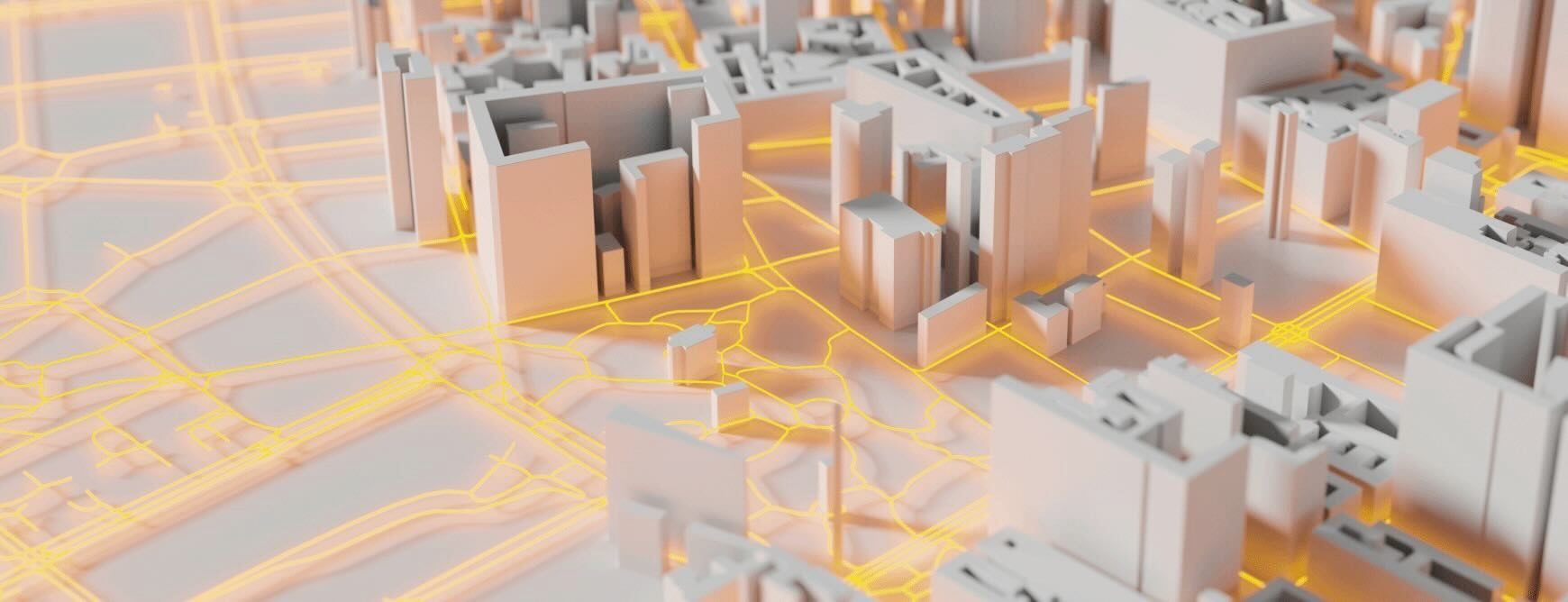스마트 시티는 도시 서비스를 개선하고 지속 가능성, 공중 보건 및 도시 계획과 같은 영역에서 목표를 달성하기 위해 신기술을 적극적으로 활용하는 도시입니다.
최근 몇 년 동안 고급 통신 네트워크, 데이터 수집 및 분석, 연결된 디바이스와 같은 기술이 점점 더 일반화되면서 시 정부는 도시가 어떻게 운영되고 있는지에 대한 새로운 가시성을 확보했습니다. 또한, 긴급한 문제와 시민의 요구에 실시간으로 대응할 수 있는 새로운 방법을 얻었으며, 미래를 계획하고 있습니다.
스마트 시티의 “도시”는 도시 정부를 의미하지만, 스마트 시티 솔루션은 일반적으로 민간 부문의 혁신가들이 설계하고 구축하는 협업입니다. 일부의 경우, 지능형 기술을 자체 자산에 추가하는 것 외에도, 시 정부는 민간 부문에 대한 규정 또는 인센티브를 알리기 위한 모범 사례를 모색할 수 있습니다.
많은 도시가 수년 동안 격리된 스마트 시티 기능을 사용해 왔지만(예: 교통 통제), 오늘날 스마트 시티의 특징은 시스템과 데이터를 통합하여 문제에 대한 더 깊은 솔루션을 찾고 도시와 도전과제에 대한 보다 전체적인 관점을 확보하는 것입니다.
스마트 시티에서 데이터의 역할
데이터는 거의 모든 스마트 시티 기술과 관련된 필수 원재료입니다. 경우에 따라, 이러한 시스템은 클라우드로 전송되는 매우 많은 양의 데이터를 수집하고 분석하는 것에 의존합니다. 경우에 따라 실시간 사용을 위해 데이터에 대한 액세스를 유지해야 하므로, 다양한 스토리지 전략과 하드웨어가 필요합니다.
스마트 시티 시스템의 요소
스마트 시티 시스템은 다음과 같이 구성될 수 있습니다.
- 변수를 측정하고 조치를 정의하고 의사 결정을 지원하는 데 필요한 데이터 스트림을 생성하는 커넥티드 카메라 및 센서. 이러한 엔드포인트는 시각적, 환경적 또는 네트워크 사용에 따라 달라질 수 있습니다.
- 사물인터넷(IoT) 디바이스와 같은 커넥티드 인프라는 데이터를 생성하고 실시간으로 지침을 수신할 수 있습니다.
- 엔드포인트에서 생성된 방대한 양의 데이터를 수신, 집계 및 저장하는 데이터 스토리지입니다.
- 데이터와 함께 작동하여 응답을 정의하고 인사이트를 생성하는 애플리케이션입니다.
- 인사이트를 활용하여 변화를 일으키거나 삶의 질을 향상시킬 수 있는 정보를 제공하는 행동 또는 시민과의 직접적인 커뮤니케이션 형태의 실시간 대응.
스마트 시티 기술의 활용
기술이 발전함에 따라 새로운 스마트 시티 솔루션이 계속 등장하고 있지만, 다음과 같은 것들이 있습니다.
- 폐기물 관리: 휴지통과 재활용 용기의 센서는 쓰레기통을 비울 때 상태를 전송하고 알림을 보낼 수 있습니다.
- 교통 및 교통 : 트래픽 또는 사람에 대해 수집된 데이터는 실시간으로 모니터링되며 트래픽 제어 또는 전송 일정을 안내하는 데 사용됩니다.
- 공기질 : 센서는 공기의 질에 대한 실시간 데이터를 제공하여 패턴과 문제 영역을 식별합니다.
- 위치 분석: 데이터와 지도는 시너지 효과를 발휘하여 도시 운영, 인력과 상품의 이동 및 환경 위험에 대한 강력한 지리적 인사이트를 제공합니다.
- 디지털 트윈: 디지털 트윈은 도시의 세부 가상 모델로, 실제 도시와 마찬가지로 모든 데이터 포인트를 실시간으로 업데이트합니다. 이는 도시에 상당히 새로운 기술이지만, 도시 운영을 높은 수준으로 보고 예측 분석을 수행하는 데 특히 유용한 도구로서 이미 약속을 보여주고 있습니다.



